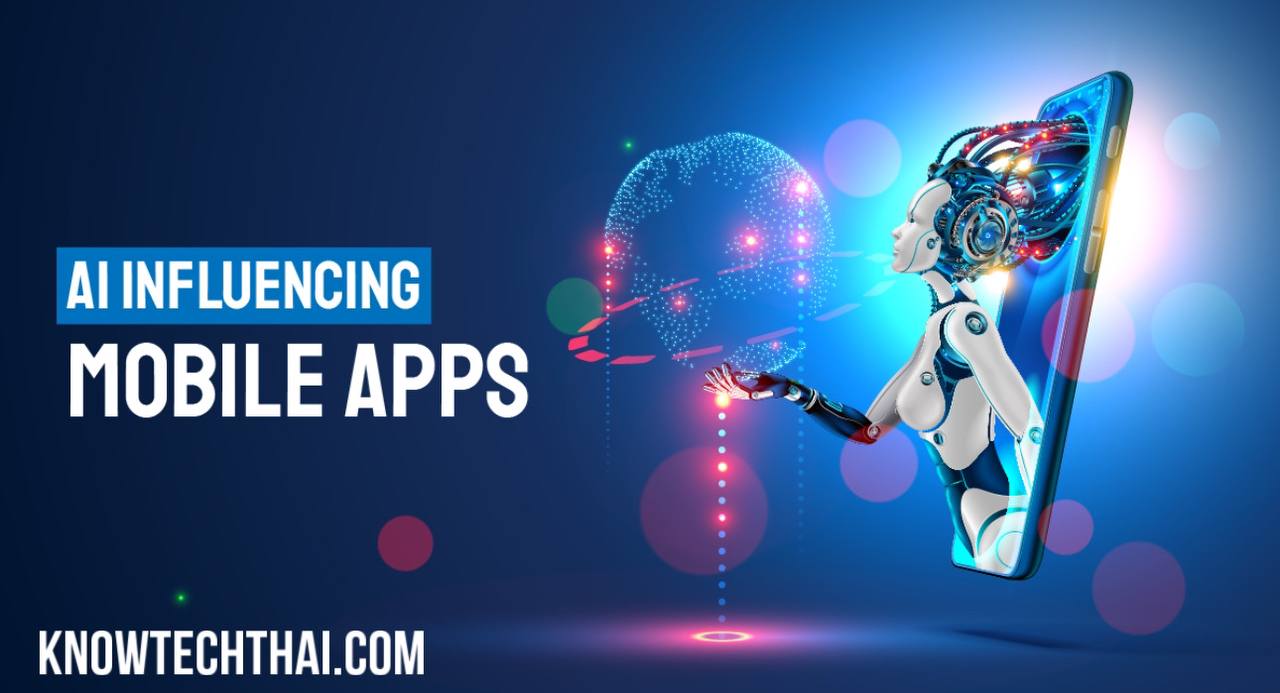Artificial intelligence (AI) technology has rapidly advanced in recent years, as seen throughout the globe. Artificial intelligence (AI) has transformed several sectors and is still changing how we live and work. Examples include virtual assistants and self-driving automobiles. The creation of mobile applications is one area where AI has enormous promise. The use of AI in mobile applications has the potential to improve user experiences, expedite procedures, and provide interactions that are more customized than before. We will explore the numerous ways AI is altering the mobile app development scene in this blog article and consider its future possibilities.
User Experiences That Are Personalized
The goal of mobile applications is to provide consumers more individualized experiences. AI enables developers to collect and evaluate relevant user data to provide specialized app interfaces, suggestions, and content. For instance, an AI-powered fitness app may analyze user activity, provide personalized training regimens, and provide dietary advice based on preferences and specific objectives. AI helps applications to become more intuitive and react to individual requirements by customizing the user experience, increasing user engagement and happiness.
Natural Language Processing Improvements
The days of using mobile applications when users had to follow strict instructions or navigate through several menus are long gone. Mobile applications can now understand and react to user requests in a more human-like way thanks to AI-powered natural language processing. The promise of AI in this field has already been proved by virtual assistants like Siri, Google Assistant, and Alexa. Users may navigate around applications and do activities more easily by integrating natural language processing into mobile apps, which enables seamless voice interactions.
Improvements in Machine Learning
AI’s core component, machine learning, has enormous promise for the field of creating mobile applications. Apps may continually learn from and adjust to user behaviors, preferences, and requirements thanks to machine learning algorithms. Apps can anticipate user intents as a result, provide relevant recommendations, and perform better overall. An AI-powered e-commerce software, for instance, may evaluate user browsing patterns and prior purchases to suggest goods that match certain interests, making for a more tailored and gratifying buying experience.
Mobile applications might benefit from a new degree of automation and intelligence thanks to streamlined automation and intelligent decision-making AI. Apps may automate monotonous processes like data input and analysis by using AI algorithms, freeing developers to concentrate on more crucial areas of app development. Additionally, AI-enabled applications have the capacity to make deft judgments based on real-time data like traffic conditions, user location, and weather data. This makes it possible for applications to provide users timely and relevant information, suggestions, and notifications, improving their overall experience and convenience.
Improved Fraud Detection and Security
A crucial component of developing mobile apps is security. Apps may strengthen their security measures and allow effective fraud detection by integrating AI. AI is able to monitor user behavior patterns, spot abnormalities, and instantly flag possibly fraudulent activity. In order to provide a secure environment for users to engage and execute transactions, AI-powered applications may improve data protection and reduce cybersecurity threats.
Final Reflections
The potential of AI in the creation of mobile apps is enormous and growing quickly. Artificial intelligence (AI) has the potential to fundamentally alter how we use mobile applications, from tailored user experiences to enhanced automation and security. We may anticipate even more ground-breaking developments and uses in this field as technology progresses. The future of mobile app development is in using AI to provide smarter, more user-centric, and intuitive experiences that are tailored to each person’s particular requirements.
